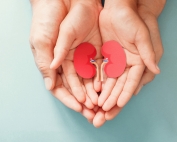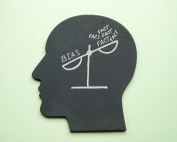What is Mental Health?
 Mental health is defined by the World Health Organization as a state of well-being in which every individual realizes his or her own potential, can cope with the normal stresses of life, can work productively and fruitfully, and is able to make a contribution to his or her community. If you don’t have a healthy mental state, it will be hard for you to live your life to the fullest.
Mental health is defined by the World Health Organization as a state of well-being in which every individual realizes his or her own potential, can cope with the normal stresses of life, can work productively and fruitfully, and is able to make a contribution to his or her community. If you don’t have a healthy mental state, it will be hard for you to live your life to the fullest.
The nation’s health leaders have begun expanding on the definition of health. The Centers for Disease Control and Prevention changed the definition of health to “a state of complete physical, mental and social well-being and not just the absence of sickness or frailty.” This shift of considering individual health as a whole mind body experience is refreshing, but the idea still needs to spread and expand from a definition into a cultural mindset.
Occurrence in the US and Patient Outcomes
Mental health disorders are common in the United States, and each year approximately one quarter of the population suffers from one or more disorders.
Research has shown that the death rate from chronic diseases such as heart disease and diabetes are two to three times greater for people living with mental health conditions.
Mental Health and Chronic Kidney Disease
Maintaining emotional health can be a challenge for anyone and may be even more difficult for those that have chronic kidney disease CKD. Most patients experience a wide range of feelings as they adjust to the realities of kidney failure and dialysis. In addition, emotions can also worsen the symptoms of your disease, creating a cycle that is difficult to break without help.
Individuals with CKD and end-stage renal disease (ESRD) know that the numbers on the machine or lab printout don’t tell the entire story. You could look great and your numbers could come back poor, or you can feel awful and all of your tests are positive. Similarly, you could look physically strong to others and be suffering on the inside.
Having a chronic condition can greatly impact your mental state and your mindset. Don’t hesitate to seek help from your doctor. Having a strong mental health status could make the difference in the outcome of your treatment.
Depression and Coping Strategies
People with CKD and ESRD are at a higher risk for depression than the general population. They have to cope with the losses associated with the illness, the changes in lifestyle, and the feelings of lack of control.
Attitude and acceptance can help with the feelings of being down and sad. Furthermore, one may need to add additional interventions for dealing with depression. It may be helpful to talk to a psychologist, or the social worker at the dialysis facility, and/or to join a support group.













